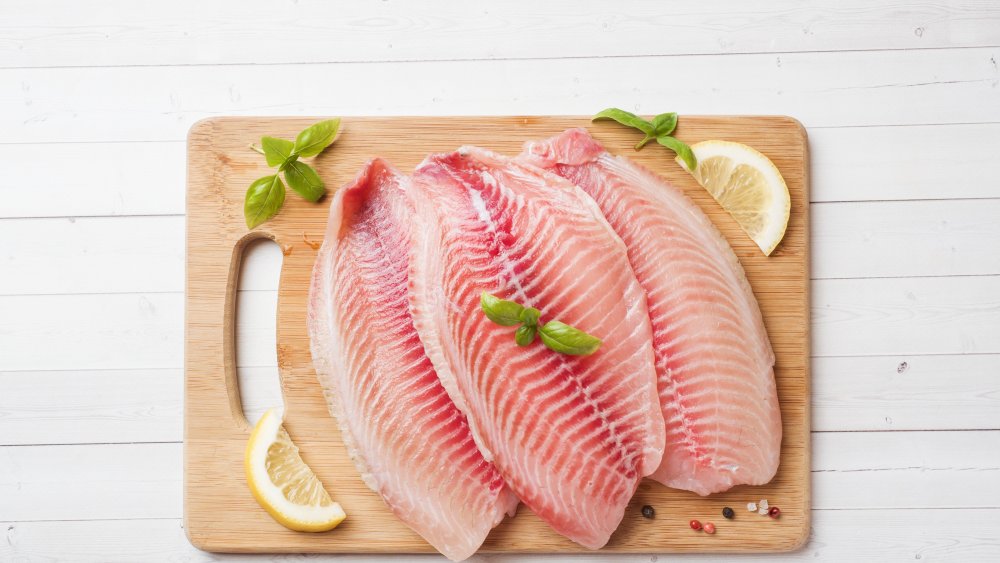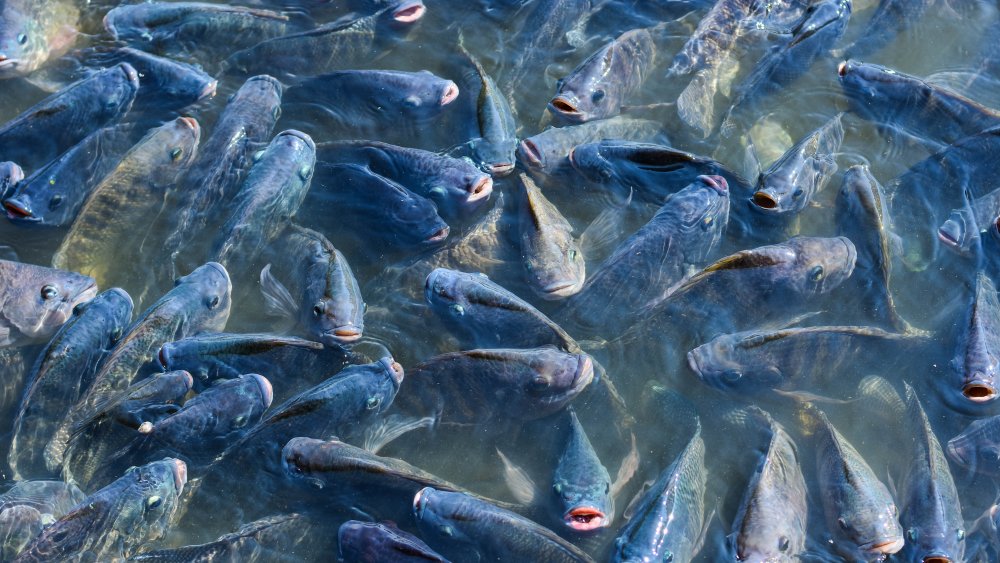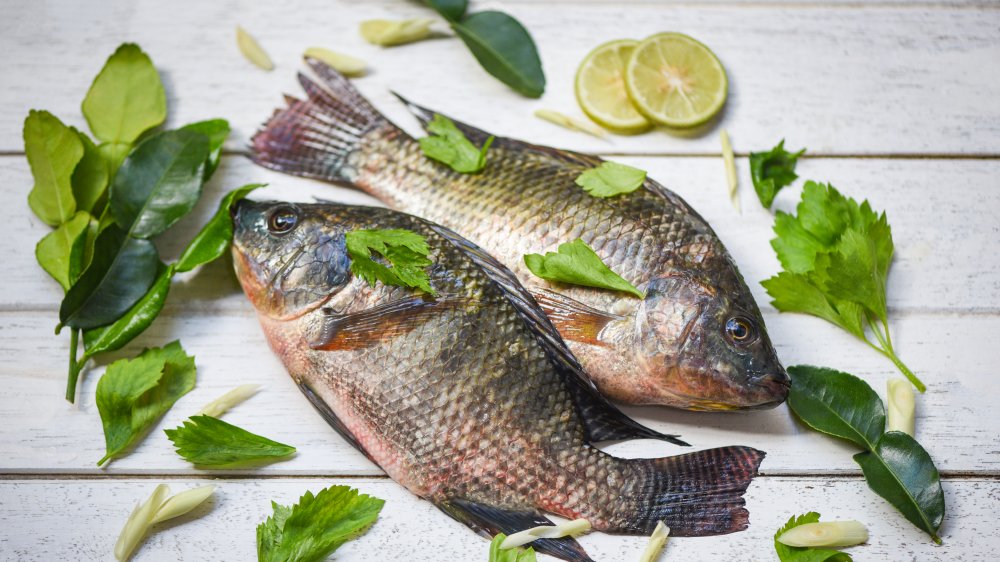Is Tilapia Ok to Eat Again
What Y'all Demand To Know Before Eating Tilapia Again
If yous're a seafood lover, tilapia may have become something of a staple on your dinner table in the final few years. It's been abundantly available, fairly inexpensive, and it has a mild flavor that lends itself to a wide diversity of recipes. What's non to like? Well, it turns out, potentially a lot if y'all believe all the cyberspace rumors; we've read it's more unhealthy than bacon, filled with toxins, and raised on animal waste (via Berkley Wellness). And then what's the truth? Is it a good for you, versatile meal option or a slab of poison on a plate?
First, the proficient news: tilapia is a low-calorie fish packed with poly peptide at 26 grams in a 3.5 ounce serving (via Mashed). It's also loftier in B12, niacin, and potassium, and the FDA says it has among the lowest mercury levels of any fish, which is especially important for pregnant women who need to avoid fish like tuna. Tilapia is likewise low in fat, merely this is the first place where it falls short of other fish; fish is sought after every bit a wellness food due to its loftier omega-3 fatty content, equally omega-3 fats are anti-inflammatory. But tilapia really has ten times less of this healthy fat than salmon, and information technology has a higher omega-6 content (the inflammatory kind of fatty); its omega-vi to omega-3 ratio is ii-1. While that'south not excellent, Omega-half-dozen is constitute in much college amounts in other foods like ruby-red meat and nuts, so that alone should not earn tilapia its bad rap.
Why yous need to know where your tilapia comes from
Where your tilapia comes from makes a major difference in how healthy it is for you and the environs. Virtually tilapia you'll find in the grocery shop is farm-raised because the fish is so hearty. This heartiness isn't always a good affair, though, as farms that aren't concerned with raising the fish responsibly often do and then in overcrowded ponds or tanks, where disease can spread rapidly (viaMashed). As a result, anti-affliction chemicals like antibiotics tin be overused, which isn't good for the global problem of increasing antibiotic resistance. Farther, farmed fish can escape into neighboring waterways, where they can quickly overwhelm the native fish population. Plus, those anti-disease agents tin can leak (or are sometimes dumped) into local waterways.
According to the Monterey Bay Aquarium's Seafood Lookout man, if you want to stay abroad from tilapia farmed under potentially irresponsible weather, you lot should avoid anything that's been farmed in and so imported from China. Unfortunately, roughly lxx% of farmed tilapia in the U.S. comes from China, then it's important to ask where the fish is raised before purchasing it. The good news is that, Seafood Watch says tilapia raised in Peru and Republic of ecuador are particularly skillful options where information technology comes to fish being raised in eco-friendly conditions. Further, the Sea Wise Seafood Program says that tilapia from United mexican states, Indonesia, and Republic of honduras are besides eco-friendly options, every bit are fish farmed in a recirculating aquaculture organization in the U.S.
The bottom line: to eat or not to eat tilapia?
Now let'south tackle the nastier rumors about Tilapia. You've heard farmed tilapia is raised on livestock waste and don't like the idea of poop on your plate? We don't blame you, only here'due south the real deal: this data came from the USDA's 2009 report on how fish imported from China were raised (Mashed). Co-ordinate to The Washington Post, using livestock waste to feet plankton the fish feed upon is non an uncommon practice in China, and actually not an altogether terrible one. However, information technology can increase the hazard of bacteria like salmonella getting into the fish'southward food supply, and somewhen onto your plate. That's another reason you want to avert tilapia raised in Prc.
And where did we go the thought that tilapia is worse for our health than bacon? From a study in the Periodical of the American Dietetic Association that investigated the omega-3s to omega-6 ration in tilapia we mentioned earlier (via Mashed). But when you consider that the average American diet includes a, omega-6 to omega-3 ratio of around 16 to i, it puts poor petty tilapia in some clearer perspective. Further, bacon is as well loaded with calories, saturated fat, and sodium, none of which is true of tilapia, and then information technology'southward condom to say the "worse than bacon" claim is exaggerated.
Bottom line: do you pick upwardly some tilapia at the grocery store or not? The experts say: sure, as long as it's role of an otherwise balanced nutrition and isn't a daily meal choice.
Source: https://www.thelist.com/248806/what-you-need-to-know-before-eating-tilapia-again/



0 Response to "Is Tilapia Ok to Eat Again"
Post a Comment